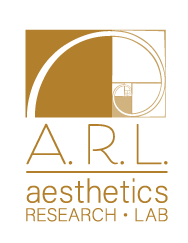Hello Fellow Aesthetics Advocates!
In 2016, I founded the Aesthetics Research Lab because I wanted to investigate the ways that aesthetics affects our lives, especially ways that are often overlooked. As a philosopher, I saw people mostly caring about aesthetics relating to art and nature, with beauty as the supreme aesthetic property.
What I found from my explorations were pockets of people in every industry or discipline that care about aesthetics. However, there isn’t a framework to bring all these people together under the common pursuit of “aesthetics.” Business executives, product designers, environmentalists, construction managers, scientists, activists, and more have realized that a concern for aesthetics can enhance their work. Even though aesthetics may be applied in different ways, core ideas weave throughout these fields. I created this newsletter to help share insights, approaches, and connections among those interested in aesthetics.
While I plan to invite people from different disciplines and professions to contribute through writing or interview, I approach these ideas as a philosopher.
Aesthetic ideas persisted throughout philosophical history, despite the word being coined in the 17th century by Alexander Baumgarten. Prior to him, most of the discussion centered on beauty. Baumgarten coined the term ‘aesthetics’ to draw a distinction between the higher faculties of knowledge (like reason and science) and the lower faculties (like sense experience and feelings). I’ve long thought that he was implying higher as in better and lower as in worse. Maybe that’s true.
However, I wonder if a better approach would be to assume higher refers to more specialized knowledge, while lower refers to more common knowledge (and experience). Not everyone will attain the specific level of knowledge to comprehend difficult theories in physics, but everyone with working eyes sees the beauty of a sunset. Rather than lower implying “less good,” I think we should consider that the lower faculties are ones that everyone has from birth, even though they can be honed and expanded.
If aesthetics are common to all people, then we should learn from each other how aesthetics is used or practiced in other contexts. By doing so, we gain new insight and methods for how we can understand aesthetics in our own industry, profession, or discipline.
What will this newsletter involve?
As this is the first newsletter, I wanted to highlight what’s in store, if you subscribe. Since I already have a formal website, Aesthetics Research Lab (ARL), I will use this Substack to act as a less formal and more creative branch of the ARL, by including:
Interviews. Rather than only discussing ideas with so-called experts, I plan to interview people in various professions and contexts because aesthetics impacts everyone. From construction managers to wine shop owners, we’ll hear specific ways they think about aesthetics.
Imaginaries. Whether concocting fake conversations with dead philosophers or creating fictional scenarios, this newsletter explores diverse ways to think through ideas about aesthetics and beauty.
Ideas. Sometimes addressing a prominent idea as a short think-piece is appropriate, especially if it pertains to recent news stories that may relate to aesthetics.
Implementations. How do we ‘add aesthetics’ to our lives? I will discuss specific areas where we could make an aesthetic difference in both personal and professional contexts.
***Please forward this to anyone else who may be interested in subscribing!
What I’ve been up to.
I’ll be speaking at Digital Fashion Week in NYC this September 8-11, 2022. And I’m organizing and moderating two panels on digital fashion for Boston Fashion Week in October 8-15, 2022.
I signed a book contract for a volume on digital fashion with Bloomsbury Publishing with two colleagues who run Fashion Forward (a digital think tank).
A new monograph, Form Follows Feeling, was published by architect Suchi Reddy, and I am privileged to have contributed a short essay, “Attending to Beauty.”
I’ve started writing articles for BeautyMatter, an online resource about the beauty industry. Click here for my author page, which will grow with each article.
I taught a course called the Philosophy and Science of Beauty at Massachusetts College of Art and Design in the spring, and I’ll be teaching one on Aesthetic Taste this fall.
To invite me to speak or write to your group or organization, please email me at michaelrspicher@gmail.com





